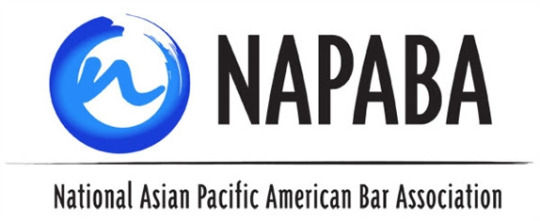
For Immediate Release
Dec. 1, 2017
WASHINGTON — The National Asian Pacific American Bar Association (NAPABA) filed amicus briefs in both the U.S. Court of Appeals for the Ninth Circuit and in the U.S. Court of Appeals for the Fourth Circuit to support the preliminary injunction of President Trump’s September 24, 2017, revised executive order barring refugees and individuals from six Muslim-majority countries and North Korea, along with government officials from Venezuela, from entering the United States.
The Trump Administration’s appeals in these cases, State of Hawaii v. Trump and International Refugee Assistance Project v. Trump, arise from the legal challenges to the third revised executive order, which was announced in September 2017 and set to take effect October 18, 2017. On October 17, Judge Derrick K. Watson of the U.S. District Court for the District of Hawaii granted the temporary restraining order. NAPABA filed an amicus brief in this case on November 22. The U.S. district court in Maryland also enjoined the visa ban on October 17, 2017, and the Administration’s appeal in that case is pending in the Fourth Circuit, where NAPABA filed an amicus brief on November 17, 2017.
“This third order continues the discriminatory and unlawful exclusion promoted by its predecessors,” said NAPABA President Pankit J. Doshi. “As a bar association committed to promoting diversity and inclusion, we are proud to continue to speak out in these cases. As an Asian Pacific American community, we have experienced the harms of exclusionary laws and we will continue to oppose this anti-Muslim and anti-immigrant order.”
NAPABA’s amicus briefs describe decades of statutory exclusion of citizens of Asian and Pacific Island countries under early U.S. immigration law, including the Chinese Exclusion Act of 1882 — the first federal law to ban a group of people on the basis of their race. The Civil Rights Era marked a dramatic turning point that saw Congress dismantle nationality-based discrimination with the Immigration and Nationality Act of 1965. The brief explains that presidential discretion in the area of immigration and refugee admission, while broad, is limited by statute. NAPABA argues that President Trump’s revised order, with its anti-Muslim underpinnings, violates the unambiguous prohibition on discrimination established by Congress.
NAPABA opposed earlier iterations of the executive order, including submitting amicus briefs at the District, Circuit, and Supreme Court level.
NAPABA recognizes lead pro bono counsel, James W. Kim, a NAPABA member and partner at McDermott Will & Emery LLP, in Washington, D.C., Mr. Kim’s team (including Andrew Genz, Joshua Rogaczewski, Philip Levine, Matthew Girgenti, and Llewelyn Engel), NAPABA Amicus Committee co-chairs, Professor Radha Pathak of Whittier Law School and Albert Giang, a partner at Boies Schiller Flexner LLP in Los Angeles, and NAPABA Civil Rights Committee co-chair Meredith Higashi for their leadership drafting the brief, which also involved the efforts of NAPABA staff.
The Ninth Circuit will hear the case on December 6, 2017, in Seattle, WA. The Fourth Circuit will hear the case on December 8, 2017 in Richmond, VA.
For more information, the media may contact Brett Schuster, NAPABA communications manager, at 202-775-9555 or [email protected].
The National Asian Pacific American Bar Association (NAPABA) is the national association of Asian Pacific American (APA) attorneys, judges, law professors, and law students. NAPABA represents the interests of over 50,000 attorneys and over 75 national, state, and local bar associations. Its members include solo practitioners, large firm lawyers, corporate counsel, legal services and non-profit attorneys, and lawyers serving at all levels of government. NAPABA engages in legislative and policy advocacy, promotes APA political leadership and political appointments, and builds coalitions within the legal profession and the community at large. NAPABA also serves as a resource for government agencies, members of Congress, and public service organizations about APAs in the legal profession, civil rights, and diversity in the courts.
NAPABA continues to be a leader in addressing civil rights issues confronting Asian Pacific American communities. Through its national network of committees and affiliates, NAPABA provides a strong voice for increased diversity of the federal and state judiciaries, advocates for equal opportunity in the workplace, works to eliminate hate crimes and anti-immigrant sentiment, and promotes the professional development of people of color in the legal profession.
To learn more about NAPABA, visit www.napaba.org, like us on Facebook, and follow us on Twitter (@NAPABA).

